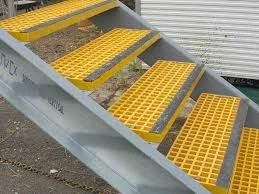
-
 Afrikaans
Afrikaans -
 Albanian
Albanian -
 Amharic
Amharic -
 Arabic
Arabic -
 Armenian
Armenian -
 Azerbaijani
Azerbaijani -
 Basque
Basque -
 Belarusian
Belarusian -
 Bengali
Bengali -
 Bosnian
Bosnian -
 Bulgarian
Bulgarian -
 Catalan
Catalan -
 Cebuano
Cebuano -
 China
China -
 China (Taiwan)
China (Taiwan) -
 Corsican
Corsican -
 Croatian
Croatian -
 Czech
Czech -
 Danish
Danish -
 Dutch
Dutch -
 English
English -
 Esperanto
Esperanto -
 Estonian
Estonian -
 Finnish
Finnish -
 French
French -
 Frisian
Frisian -
 Galician
Galician -
 Georgian
Georgian -
 German
German -
 Greek
Greek -
 Gujarati
Gujarati -
 Haitian Creole
Haitian Creole -
 hausa
hausa -
 hawaiian
hawaiian -
 Hebrew
Hebrew -
 Hindi
Hindi -
 Miao
Miao -
 Hungarian
Hungarian -
 Icelandic
Icelandic -
 igbo
igbo -
 Indonesian
Indonesian -
 irish
irish -
 Italian
Italian -
 Japanese
Japanese -
 Javanese
Javanese -
 Kannada
Kannada -
 kazakh
kazakh -
 Khmer
Khmer -
 Rwandese
Rwandese -
 Korean
Korean -
 Kurdish
Kurdish -
 Kyrgyz
Kyrgyz -
 Lao
Lao -
 Latin
Latin -
 Latvian
Latvian -
 Lithuanian
Lithuanian -
 Luxembourgish
Luxembourgish -
 Macedonian
Macedonian -
 Malgashi
Malgashi -
 Malay
Malay -
 Malayalam
Malayalam -
 Maltese
Maltese -
 Maori
Maori -
 Marathi
Marathi -
 Mongolian
Mongolian -
 Myanmar
Myanmar -
 Nepali
Nepali -
 Norwegian
Norwegian -
 Norwegian
Norwegian -
 Occitan
Occitan -
 Pashto
Pashto -
 Persian
Persian -
 Polish
Polish -
 Portuguese
Portuguese -
 Punjabi
Punjabi -
 Romanian
Romanian -
 Russian
Russian -
 Samoan
Samoan -
 Scottish Gaelic
Scottish Gaelic -
 Serbian
Serbian -
 Sesotho
Sesotho -
 Shona
Shona -
 Sindhi
Sindhi -
 Sinhala
Sinhala -
 Slovak
Slovak -
 Slovenian
Slovenian -
 Somali
Somali -
 Spanish
Spanish -
 Sundanese
Sundanese -
 Swahili
Swahili -
 Swedish
Swedish -
 Tagalog
Tagalog -
 Tajik
Tajik -
 Tamil
Tamil -
 Tatar
Tatar -
 Telugu
Telugu -
 Thai
Thai -
 Turkish
Turkish -
 Turkmen
Turkmen -
 Ukrainian
Ukrainian -
 Urdu
Urdu -
 Uighur
Uighur -
 Uzbek
Uzbek -
 Vietnamese
Vietnamese -
 Welsh
Welsh -
 Bantu
Bantu -
 Yiddish
Yiddish -
 Yoruba
Yoruba -
 Zulu
Zulu
Durable Fiberglass Flange Solutions for Various Industrial Applications and Projects
Understanding Fiberglass Flanges A Comprehensive Overview
Fiberglass flanges are crucial components in various industrial applications, particularly those involving piping systems. These flanges are made from reinforced fiberglass, a composite material that combines the strength of glass fibers with the lightweight properties of polymer resins. As industries seek more durable and corrosion-resistant materials, fiberglass has emerged as a popular choice for flanges, offering numerous advantages over traditional metal options.
One of the primary benefits of fiberglass flanges is their exceptional resistance to corrosion. In environments where moisture, chemicals, and intense temperatures are prevalent, metal flanges are often susceptible to rust and degradation. In contrast, fiberglass flanges endure harsh conditions without losing integrity, making them ideal for use in chemical processing plants, wastewater treatment facilities, and marine applications. Their resilience ensures lower maintenance costs and prolonged service life, which is essential for minimizing downtime in industrial operations.
Additionally, fiberglass flanges are lightweight compared to their metal counterparts. This characteristic simplifies installation and transportation, leading to reduced labor costs and enhanced safety during handling. The ease of installation provided by fiberglass flanges makes them particularly advantageous in projects where weight constraints are critical, such as in offshore platforms or elevated piping systems.
fiberglass flange

Another significant advantage of fiberglass flanges is their design flexibility. Manufacturers can produce fiberglass flanges in a variety of sizes, shapes, and specifications to meet the unique requirements of different applications. This customization capability allows for better integration into existing systems while ensuring compliance with industry standards. Moreover, the smooth surface finish of fiberglass flanges minimizes friction, which is beneficial for fluid flow and overall system efficiency.
Despite these advantages, it's essential to select the right type of fiberglass flange for a specific application. Factors such as temperature ratings, pressure ratings, and compatibility with the conveyed media should be considered. For instance, certain fiberglass composites may not perform well in extremely high-temperature environments, while others may not be suitable for specific chemicals. Consulting with manufacturers or engineers can help ensure that the appropriate fiberglass flange is chosen for the intended use.
In terms of environmental impact, fiberglass flanges are more sustainable than traditional metal options. The production of fiberglass typically involves fewer carbon emissions compared to metal fabrication processes. Additionally, fiberglass is non-toxic and can be recycled, contributing to a more eco-friendly approach in industrial manufacturing.
In conclusion, fiberglass flanges present a practical and efficient solution for various industrial applications, particularly those that demand corrosion resistance, lightweight construction, and design versatility. Their unique properties make them increasingly popular in sectors such as chemical processing, marine, and infrastructure. As industries continue to evolve, the adoption of advanced materials like fiberglass will likely play a significant role in enhancing performance and sustainability in piping systems. Whether planning a new project or upgrading existing infrastructure, considering fiberglass flanges can lead to improved efficiency and reliability in operations.









